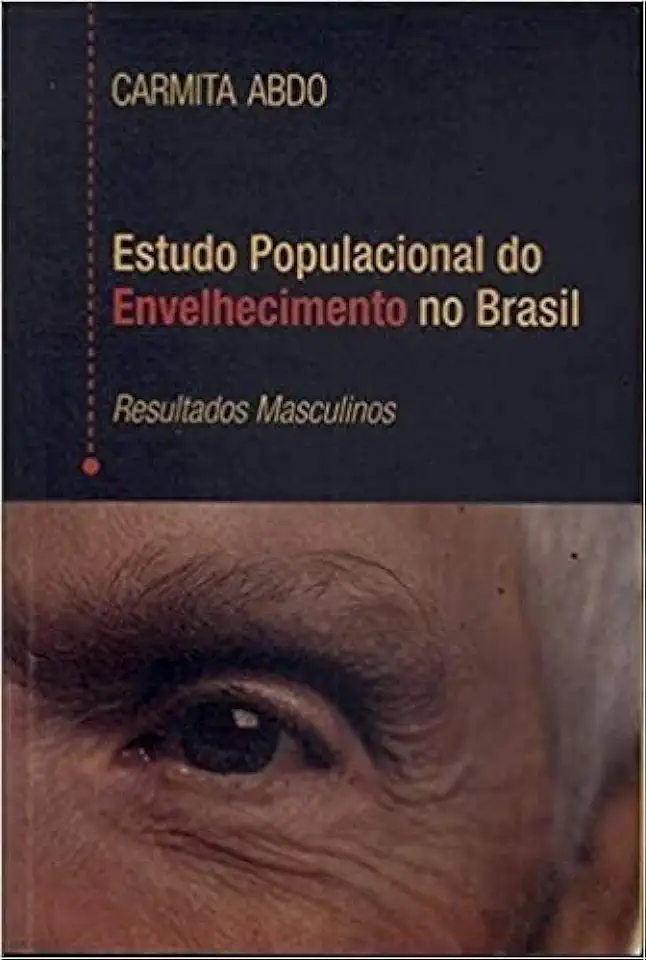
Population Study of Aging in Brazil - Carmita Abdo
Population Study of Aging in Brazil: A Comprehensive Analysis
Introduction
Brazil is a country with a rapidly aging population. By 2050, it is projected that the number of people aged 65 and over will double, from 14 million to 28 million. This demographic shift will have a profound impact on the country's social, economic, and healthcare systems.
The Population Study of Aging in Brazil (POPE) is a comprehensive study that provides a detailed analysis of the aging population in Brazil. The study was conducted by a team of researchers from the Brazilian Institute of Geography and Statistics (IBGE) and the University of São Paulo (USP).
The POPE study collected data from a nationally representative sample of 10,000 people aged 65 and over. The data was collected through face-to-face interviews and included information on the respondents' health, socioeconomic status, and living arrangements.
The findings of the POPE study provide a wealth of information about the aging population in Brazil. The study found that the elderly population in Brazil is growing rapidly, and that this growth is expected to continue in the coming decades. The study also found that the elderly population in Brazil is disproportionately female, and that they are more likely to live in poverty than younger adults.
The POPE study also found that the elderly population in Brazil has a high prevalence of chronic diseases, such as hypertension, diabetes, and arthritis. The study also found that the elderly population in Brazil is more likely to experience disability and functional limitations than younger adults.
The findings of the POPE study have important implications for the development of policies and programs to address the needs of the aging population in Brazil. The study provides evidence that the elderly population in Brazil is a vulnerable population that is in need of support. The study also provides recommendations for policies and programs that can help to improve the health and well-being of the elderly population in Brazil.
Key Findings of the POPE Study
The POPE study found that the elderly population in Brazil is growing rapidly, and that this growth is expected to continue in the coming decades. The study also found that the elderly population in Brazil is disproportionately female, and that they are more likely to live in poverty than younger adults.
The POPE study also found that the elderly population in Brazil has a high prevalence of chronic diseases, such as hypertension, diabetes, and arthritis. The study also found that the elderly population in Brazil is more likely to experience disability and functional limitations than younger adults.
Implications of the POPE Study
The findings of the POPE study have important implications for the development of policies and programs to address the needs of the aging population in Brazil. The study provides evidence that the elderly population in Brazil is a vulnerable population that is in need of support. The study also provides recommendations for policies and programs that can help to improve the health and well-being of the elderly population in Brazil.
Recommendations for Policies and Programs to Address the Needs of the Aging Population in Brazil
The POPE study provides a number of recommendations for policies and programs to address the needs of the aging population in Brazil. These recommendations include:
- Increasing access to healthcare services for the elderly population
- Providing financial assistance to the elderly population
- Developing housing options that are appropriate for the elderly population
- Promoting healthy aging through education and awareness campaigns
- Supporting research on aging and the elderly population
By implementing these recommendations, Brazil can help to improve the health and well-being of its aging population and ensure that they can live with dignity and independence.
Conclusion
The Population Study of Aging in Brazil (POPE) is a comprehensive study that provides a detailed analysis of the aging population in Brazil. The study found that the elderly population in Brazil is growing rapidly, and that this growth is expected to continue in the coming decades. The study also found that the elderly population in Brazil is disproportionately female, and that they are more likely to live in poverty than younger adults.
The POPE study also found that the elderly population in Brazil has a high prevalence of chronic diseases, such as hypertension, diabetes, and arthritis. The study also found that the elderly population in Brazil is more likely to experience disability and functional limitations than younger adults.
The findings of the POPE study have important implications for the development of policies and programs to address the needs of the aging population in Brazil. The study provides evidence that the elderly population in Brazil is a vulnerable population that is in need of support. The study also provides recommendations for policies and programs that can help to improve the health and well-being of the elderly population in Brazil.